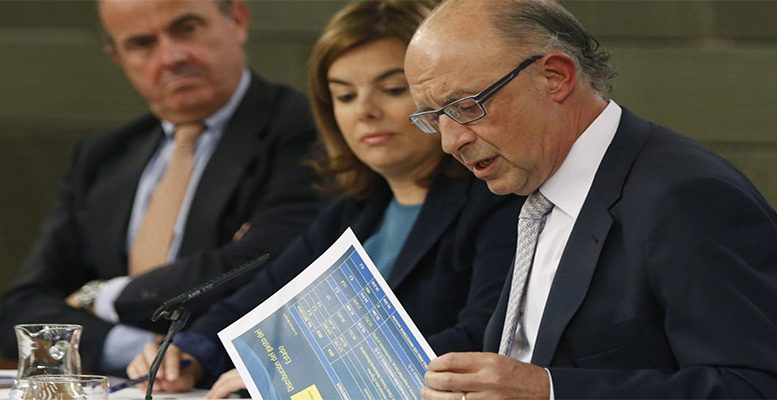Spain’s socialist party PSOE doesn’t seem to be too worried about the fact the country may not have a 2017 Budget. But it’s increasingly clear to all of us that the lack of a budget will not be without a cost. On the contrary, it will greatly affect a large part of Spanish society. Almost all economists believe that the impossibility of drawing up new accounts, and updating certain items, could mean that the amount spent on civil servants’ salaries will be maintained. So that means there will no wage hikes in the various public administrations, particularly if this implies an increase in aggregate spending.
The majority of experts also think this will undoubtedly affect pensions. And for the same reason as in the case of the civil servants: the central government is not able to update these payments. All this is even more serious if we remember that this year tax revenues and Social Security contributions are growing below forecasts. This will only serve to heighten liquidity tensions.
It looks like the the autonomous regions will be especially affected by this situation. The lack of a budget for next year prevents each Public Adminstration, including those of the regions, from establishing their economic and financial stability objectives. And, more importantly, the debt limit for the regions cannot be established. That’s perhaps why some socialist “barons”, mainly those in Castilla La Mancha, Extremadura and Andalucia, have been fairly nervous about the deadlock in Parliament, with caretaker Prime Minister Rajoy not succeeding in getting approval for his investiture last week.
Everything indicates that the regional governments, which will once again fail to meet their deficit target and have to finance themselves exclusively with FLA, will not be able to increase their spending because the government is limited to extending the 2016 budget. The worst thing is that the regions will not have any additional margin and will have to lower the deficit to 0.3% compared with the 0.7% agreed with the Finance Ministry.
This is because, as we know, the agreement reached in April in the Fiscal and Financial Policy Committee, the organism which encompasses the Finance Ministry and the regions, has not been ratified in Parliament due to the lack of a government. Under the terms of this agreement, the 2016 deficit was raised from 0.3% to 0.7%. All this will mean that the regions will miss out on receiving around 4 billion euros.
Another effect of the lack of government is that, for the time being, it prevents any action being taken to reform the regional financial system. In Castilla Leon, which is governed by the PP, have not held back on their dismay. “Having a budget allows activity to continue, for investments to be made, and decisions taken,” the region’s deputy president said. She was very angry (and even said “enough’s enough”).
There’s also huge uncertainty over how the EU will react to the lack of budget. In principle, the government has until October 15 to present the Kingdom of Spain’s accounts to Brussels. Not only will it not meet this obligation but the implied extension will prevent it from designing a new project to comply with Brussels demands to cut the deficit below 3% in 2017. This requires 5 billion euros of structural cuts that will not happen.
Some say there is the possibility that the EU will take the matter into its own hands and make some decisions, in place of the Spanish government: of course via regulations with which Madrid will be obliged to comply. This would not do Spain any good as far as markets and international investors are concerned. As a rule, and contrary to what we might think, they are not very discriminating and frequently don’t look further than the headlines.
This kind of forced “adjustment” is a serious ‘handicap’ for our country, coming just at a time when all the items related to spending, from consumption to investment, were on the rise. Will this affect GDP growth? It definitely will. And that will be a bad thing.





